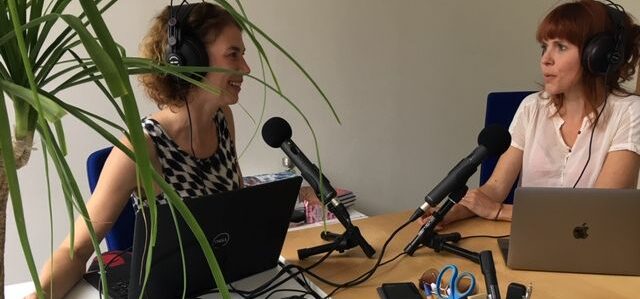December 16, 2021
How do we talk about participation?
What do we mean when we talk about victim participation? How do we conceptualize the notion of participation in transitional justice so we can study or even evaluate it? In this episode, Justice Visions colleagues Gretel Mejía Bonifazi and Elke Evrard address these theoretical questions and connect them to the struggle of the COCOP community, an Ixil community in the Guatemalan Highlands seeking truth, justice, and redress for a state-led massacre during the armed conflict.
First, we outline why an actor-oriented approach is needed to shed light on the participatory ‘trajectories’ of survivors throughout an ‘ecosystem’ of transitional justice spaces and moments. Then, our interviewees Juan Cobo Brito and Juana Santiago Cedillo share reflections from their own participation trajectory, drawing our attention to the importance of exploring participants’ identities and interests, the different spaces they navigate, the temporalities of participation, and alternative ways of thinking about impact or outcomes.
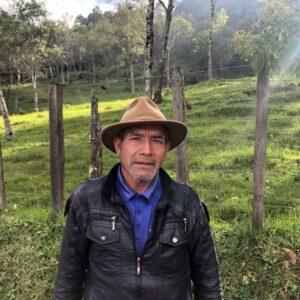
Juan Cobo Brito
“… what we have is strength, we have made the effort, we are worthy, our lives, have worth and we are going to demand it. […] Because we have to preserve our memories, our stories.”
– Juan is the current Vice-President of the COCOP Victim Committee. He was severely injured during the COCOP massacre and later forced to become part of the Civil Defense Patrols.
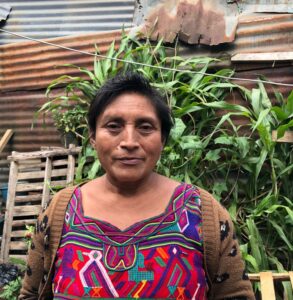
Juana Santiago Cedillo
“… that they see our, our conflict, that they see the problems that we face, why did we lose our families? That they recognize it, that is the only thing, the only thing I demand is justice.”
– Juana is a survivor of the COCOP massacre, who after many years of living in Guatemala City, returned to Nebaj to actively seek redress for the crimes committed against her and her family.
To learn more about the community and their struggle, you can read the report “COCOP: Crónicas del genocidio” or listen to the moving song “Los mártires de COCOP” which is part of the Songs of Resistance Compilation.
Photo on the left: Mural in Nebaj, El Quiché © Gretel Mejía Bonifazi
Voice over: Mauro Morales and Ana Paula Oxom
November 17, 2021
How do we talk about time and temporality in the Chilean transition?
In this episode, we reflect on the Chilean transitional justice process and questions related to time and timing. Firstly, we zoom in on the concept of temporality, which refers to the lived experience of time. Secondly, we take a closer look at the implementation and sequencing of the Chilean transitional justice process and the consequences of this temporal organization for victims of human rights violations.
Our two guests, Noemí Baeza and Haydee Oberreuter talk about the return of memories during the social protest movement that erupted in Chile in 2019, the timing of the Chilean truth commissions, and the imposition of a law that was established with the second truth commission (The “Valech Commission” in 2003), imposing effectively 50 years of silence. A law that, according to Haydee Oberreuter, victims’ never asked for and severely limited access to truth and justice.
Highlighting the experiences of Haydee and Noemí, both survivors of political detention and torture, the episode demonstrates unfulfilled promises of the Chilean transition and the daily consequences of overlooking the needs of victims/survivors.
Haydee Oberreuter
“the imposition of 50 years of silence. 50 years of silence that prevented our testimonies from being known by the courts.”
“And the courts work at the speed of a turtle, that thinks and thinks what it is going to do. It is delaying and thereby facilitating the installation of impunity at a rate that is convenient exclusively to the violators of human rights.”

Haydee Oberreuter is one of the leaders of the Comando Unitario de Ex Prisioneros Políticos y Familiares and spokesperson of the NGO Derechos en Común. She is a survivor of political detention and torture.
Interview with Haydee Oberreuter:
Transcript Spanish interview Haydee Oberreuter
Noemí Baeza

Noemí Baeza worked as a teacher and social worker and is a survivor of political detention and torture. She returned to Chile in 1984 after 10 years of exile in the Netherlands.
Interview with Noemí Baeza:
Transcript Spanish interview Noemí Baeza
Voice over: Gretel Mejía Bonifazi
Audio fragment protests: Daniela Zubicueta
October 29, 2021
How do we talk about truth in South Africa?
“There was this tsunami of truths”
In 1995, South Africa installed a Truth and Reconciliation commission to address the legacy of Apartheid. The commission has received a lot of criticism, for its failure to provide reparations, its amnesty policy, and several other reasons. Yet, it has also been an important factor in shaping how we think about past injustice, as well as shaping how we think about truth.
In this episode we talk with Antjie Krog, a South African journalist, writer and poet whose writings often reflect on elements related to truth and redress for victims. Her seminal work of literary non-fiction Country of My Skull addressed the Truth and Reconciliation commission’s hearings.
In her nuanced reflections, she acknowledges the failings of this Commission, and truth commissions more generally, but also states that “I can’t imagine the country without it. Even those who cut themselves off from what is happening there, it has reached them in a way”.
We talk with her about how the work of the truth and reconciliation commission has sometimes been complemented with narrative and literary efforts to engage with the concept of truth and justice, and examine where the two can meet. “I do not think literature can do the work that a truth commission did. Literature can look afterwards, and literature should work before.”
September 24, 2021
How do we talk about justice for Syrians?
When the Syrian uprising started in 2011, justice and accountability were key demands of the protest movement. Civil society activists and international stakeholders embraced the transitional justice paradigm to accompany the hoped-for transition. However, the Assad regime’s policies of annihilation crushed the uprising and led to a civil war, with an increasing number of perpetrators of crimes. While states failed to provide a meaningful response, Syrian and international stakeholders continue to pursue justice in a situation where impunity seems the norm.
In this episode, Brigitte Herremans makes the case for opening the ‘justice imagination’, stretching the boundaries of what is imaginable in terms of justice. She sheds a light on how justice actors try to overcome the justice impasse, notably with regard to the crimes of forcible disappearances and kidnappings. Brigitte also shares insights from an article she co-authored with Tine Destrooper, exploring the concepts of invisibilization and erasure of experiences of Syrian victims. To demonstrate how these crimes are foregrounded concretely, Brigitte spoke to Maryam al-Hallak and Yasmin Fedda.
Maryam is a founding member of the Caesar Families Association, gathering families who identified missing relatives through a collection of photographs known as the Caesar Files. Her son Ayham was forcibly disappeared and killed by the regime, and she never retrieved his body. Yasmin Fedda is a Palestinian-Syrian filmmaker who lectures at Queen Mary University of London. She directed the documentary Ayouni, chronicling the story of media activist Bassel Safadi and Italian priest Paolo, who are respectively disappeared and executed by the regime and kidnapped by ISIS. Maryam and Yasmin share some of the complexities of this quest and highlight the importance of making sure these crimes are not forgotten.
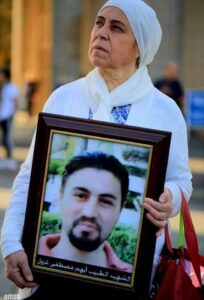

The full interview with Maryam al-Hallak is available below:
July 8, 2021
Spotlight on Germany and Namibia
The German recognition of the genocide in Namibia
In June, Germany officially recognized the genocide against the Herero and Nama people of 1904-1908, acknowledging the responsibility of the German colonial authorities in Namibia and offering a reparation of 1,1 billion euros. Nama and Herero people were deliberately targeted under German colonization, resulting in tens of thousands of deaths (estimates go as far as 80% of the Herero and Nama minorities), confiscation of land and livestock, and inhumane treatment.
In this episode, we talk with Professor Reinhart Kößler and Mrs. Ida Hoffmann to understand what triggered the German recognition of the genocide, how it has been received by various actors concerned, and whether and how these questions are relevant for the expanding field of transitional justice. While the UN officially recognized this genocide already back in 1985, Germany only lately started using this language. As Professor Kößler argues, ‘the German official language really skirted around that word genocide for a very long time when it came to Namibia and the German past as a colonial power in general. They even went to great length to avoid talking about genocide.’
Justice is still a long way ahead, insists Mrs. Hoffmann. ‘This is not justice because all of the sudden, the two governments are talking now today. The majority of the Nama people are not there, the traditional leaders. The Herero traditional leaders are not there. With whom they are talking? There is no way where our government can just together with the German government come in and decide on how much will be paid. Acknowledgment is what we want, the round table with that acknowledgment.’
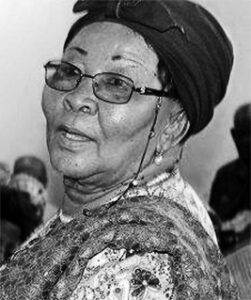
Ida Hoffman is a longtime defender of the recognition of the genocide in Namibia, an advocate for reparations and committeed to the rights of the descendants of the victims of the Namibian genocide. She was Chairperson of the Nama Genocide Technical Committee (NTLA).
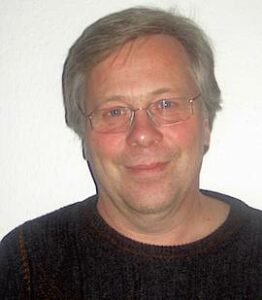
Reinhart Kößler is Professor in Sociology and director of the Arnold Bergstraesser Institute in Freiburg. He is a German sociologist with long research experience concerning Namibia and particularly Namibian-German memory politics.

